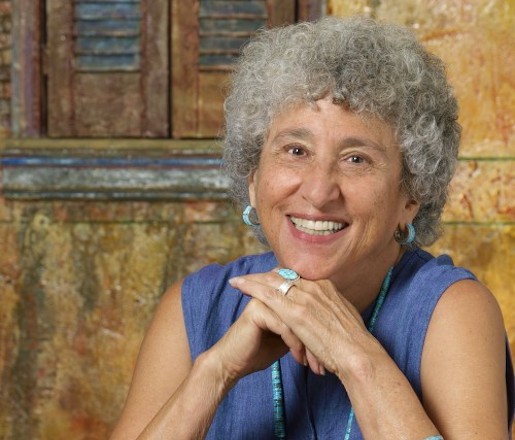JBF Award Winner Marion Nestle on Food and Health in America
JBF Editors
JBF EditorsOctober 16, 2014

The 2014 JBF Food Conference, taking place October 27–28 in New York City, will explore the intersection of food and health. Our speakers and panelists will discuss the myriad ways in which food supports personal and public health; fails to deliver on the promise of better health; and both drives and responds to other cultural forces in America today.
In anticipation of this two-day event, we're holding Health Month here on the JBF blog. In the post below, JBF Award-winning author and NYU professor Dr. Marion Nestle discusses her concerns about the current relationship between health and food in America, along with her hopes for changes in policy and attitudes. Nestle will participate in a dialogue with the Atlantic's Corby Kummer on the first day of our conference. You can watch a live broadcast at jbffoodconference.org.
--
JBF: How is our country failing people with regard to the connections between food and health?
MN: We’re not doing a good enough job of developing food policies that link systems of food production, distribution, sales, and marketing to food choices that promote health and environmental sustainability. We need to implement policies that promote more sustainable and environmentally-friendly production of plant crops and food animals; pay living wages to workers throughout the food system; provide adequate food assistance to those in need; feed all school children healthfully; prevent the marketing of unhealthful foods to children; label foods honestly and accurately; and link food production to health outcomes. This means a complete revamping of the Farm Bill, but that is long overdue, anyway.
JBF: How does your work focus on, or impact, the connections between food and health?
MN: I teach and write about how food industry marketing practices make it difficult for individuals to make food choices that promote health and the environment. My personal goal is to empower the students I teach and the readers of my books and blog to take action to improve current food systems. I want everyone to join the food movement and help create a healthier and more equitable society.
JBF: What do you think our health care system will look like in ten years? What role will food play?
MN: I can only guess that once it becomes obvious that treatment is more expensive for individuals and for society than preventing health problems, improving diets will become far more important than it is now. Type 2 diabetes, for example, can largely be prevented by not becoming overweight. With luck, our health care system will focus its attention and strategies on realizing the benefits of a healthy society.
JBF: What is the biggest myth you would like to dispel surrounding food and health?
MN: The myth that, when it comes to body weight, what you eat is more important than how much you eat. What you eat is critically important to health, but overeating even the healthiest foods will cause weight gain, alas.
JBF: What is one thing you think most people don't know about the relationship between health and food?
MN: I wish that everyone understood on some gut level that larger food portions have more calories. I know that sounds absurd, but in my experience, nobody believes that a liter of soda could possibly contain 400 calories. If you want to lose weight, the most effective way is to eat smaller portions.
--
Tune into jbffoodconference.org on October 27 and 28 for a live broadcast of the JBF Food Conference.



-57 web.jpg)


